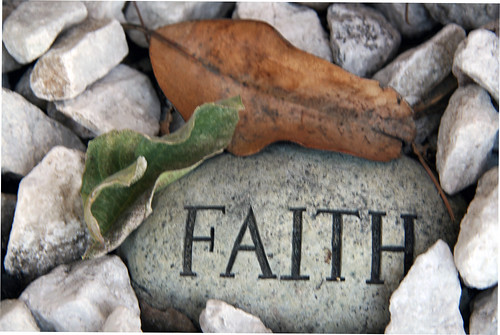 I like to think of myself as a pretty good exegete (a fancy word for someone trained to take apart and understand a passage of Scripture) and a fair preacher, but I'm a real neophyte when it comes to Christian spirituality. I love the fact that my Presbyterian/Reformed Tradition values the intellect and insists that it be heavily engaged in the faith, but this sometimes leads to an overemphasis on head knowledge and an underemphasis on what some call heart knowledge.
I like to think of myself as a pretty good exegete (a fancy word for someone trained to take apart and understand a passage of Scripture) and a fair preacher, but I'm a real neophyte when it comes to Christian spirituality. I love the fact that my Presbyterian/Reformed Tradition values the intellect and insists that it be heavily engaged in the faith, but this sometimes leads to an overemphasis on head knowledge and an underemphasis on what some call heart knowledge. I realize that all sorts of things pass themselves off as spirituality these days, some of them things incompatible with Christian faith; some of them incompatible even with good mental health. But the fact of some problematic spiritualities floating around does not change the fact that spirituality - or mysticism as it used to be called - has a long and cherished place in Christian faith. And so a think it a wonderful thing that there has been a resurgence in spirituality in many Presbyterian churches.
All of this gives a little background to my own reaction to some of today's lectionary verses. In Psalm 145 I read, "The Lord is near to all who call on him, to all who call on him in truth." And then in Matthew Jesus says, "Whatever you ask for in prayer with faith, you will receive." Now as one who more often than I care to admit feels that God is distant, and who is not overflowing with confidence that I will receive whenever I pray, such verses unsettle me just a bit.
Perhaps that makes it providential that I also read an interesting piece on faith in a daily meditation I receive via email. Father Richard Rohr clearly is more experienced in things spiritual than I am, and he had some interesting thoughts on faith. "The opposite of faith is not intellectual doubt, because faith is not localized primarily in the mind. The opposite of faith, according to a number of Jesus’ statements is anxiety. If you are fear-based and “worried about many things,” as he says in Luke 10:41, you don’t have faith in a Biblical sense. Faith is to be able to trust that God is good, involved, and on your side. So you see why it takes some years of inner experience to have faith. It is not just that somewhat easy intellectual assent to doctrines or an agreement with a moral position. This has passed as the counterfeit of faith for far too long."
What does faith mean to you, and how do you grow in faith? Or to follow Fr. Rohr's thinking, how do you become less anxious? We seem to be living in anxious times, times which are perhaps corrosive to faith. For some reasons this reminds me of a cartoon I once saw in which an overly animated flight instructor is screaming at a struggling student pilot, "Relax, dammit!!"
Oh, for a bit more of the knowledge that doesn't live between the ears. Oh, for a little more heart knowledge.
It may sound like a paradox, but knowing that a minister such as yourself has doubts and feels distance between himself and God is somehow reassuring to me. For those of us who struggle with faith, it sometimes appears that "true believers" simply believe, effortlessly, without question. For a person who doubts and questions, this can result in a distancing from faith and church, a feeling of not belonging because of those doubts and questions. I find it enormously encouraging, freeing even, to have a pastor say "I doubt and question, too, and that's okay."
ReplyDeletebecky sullivan